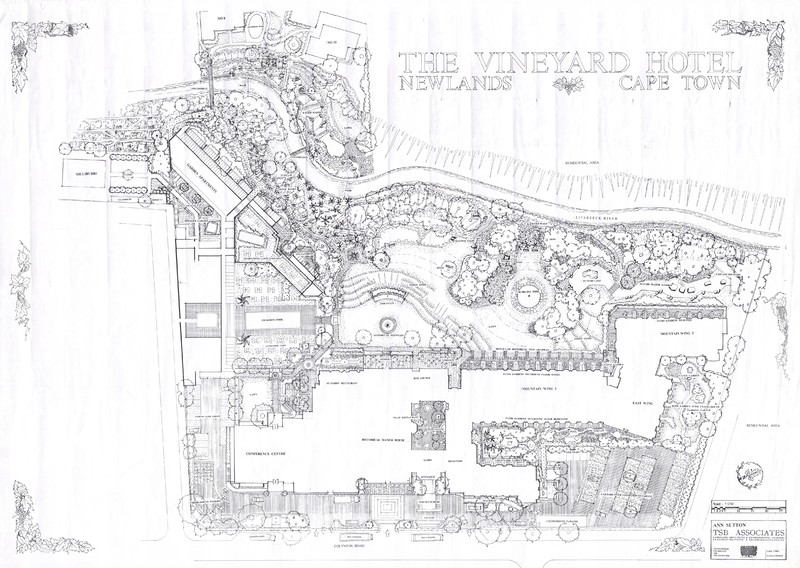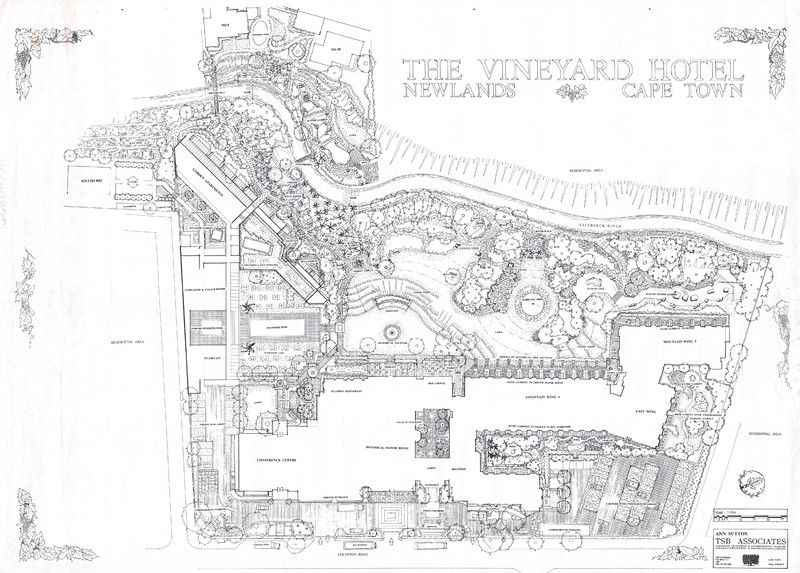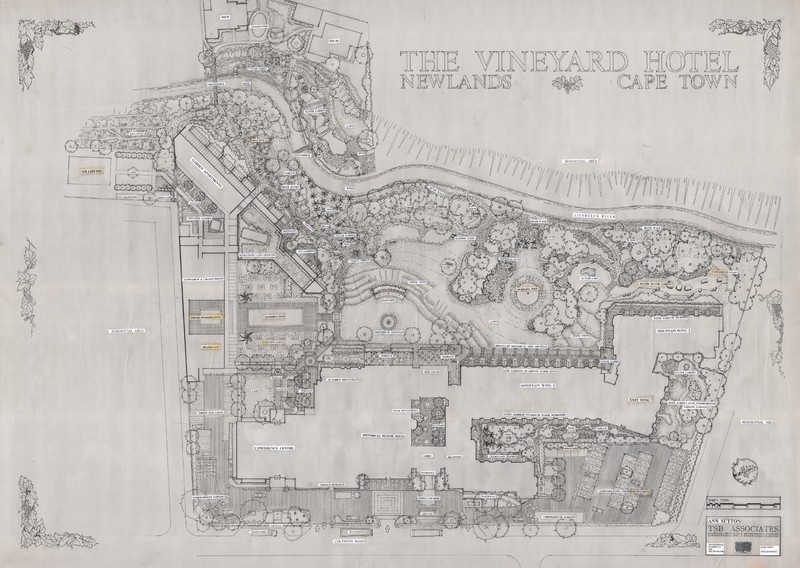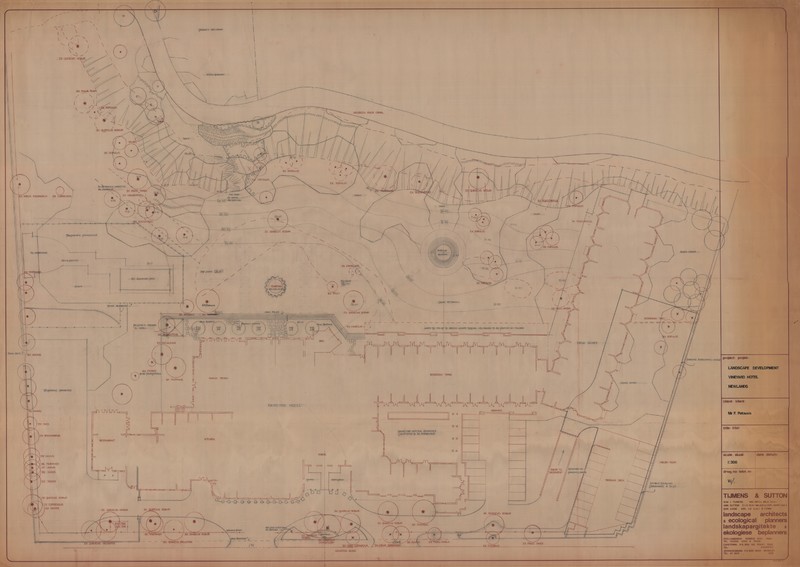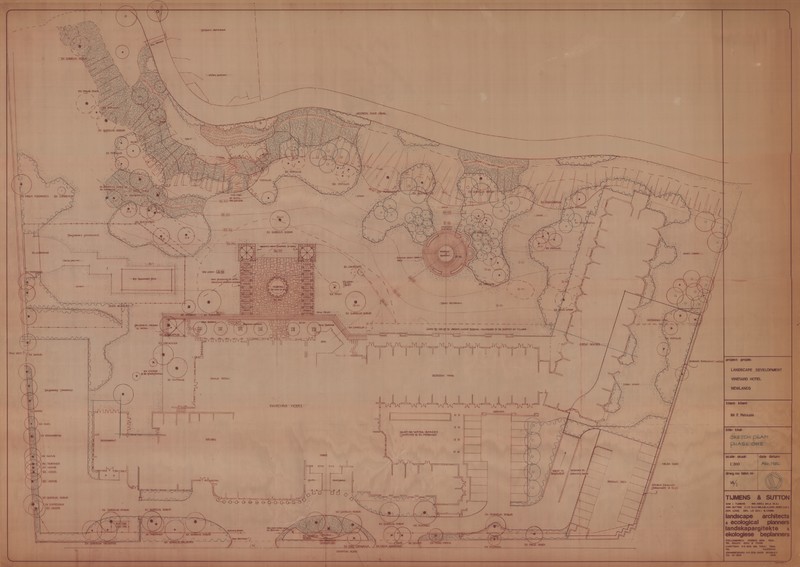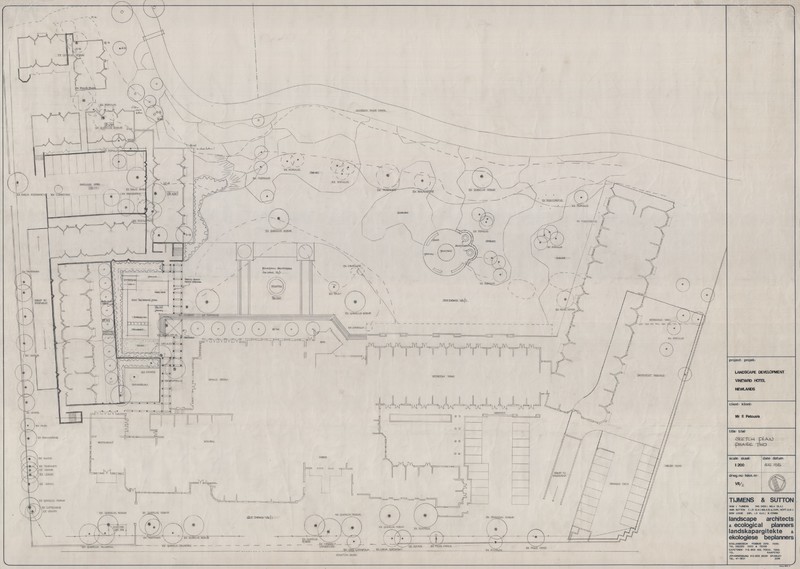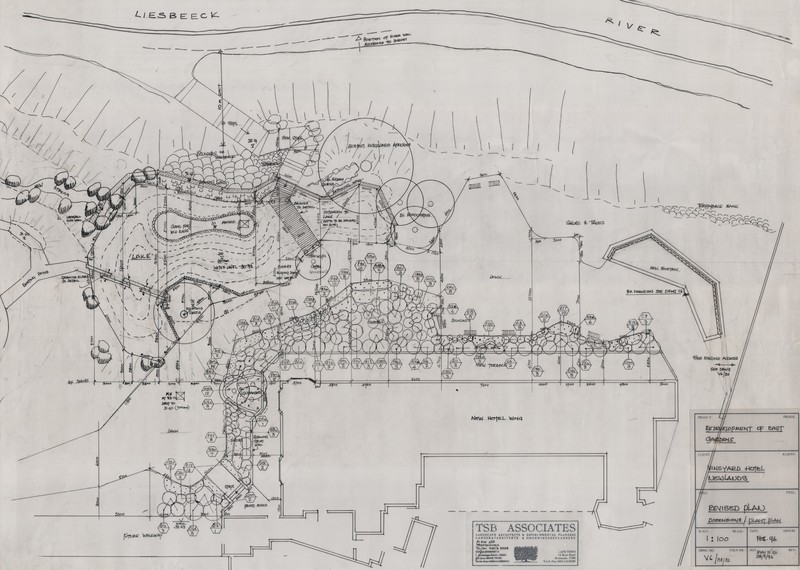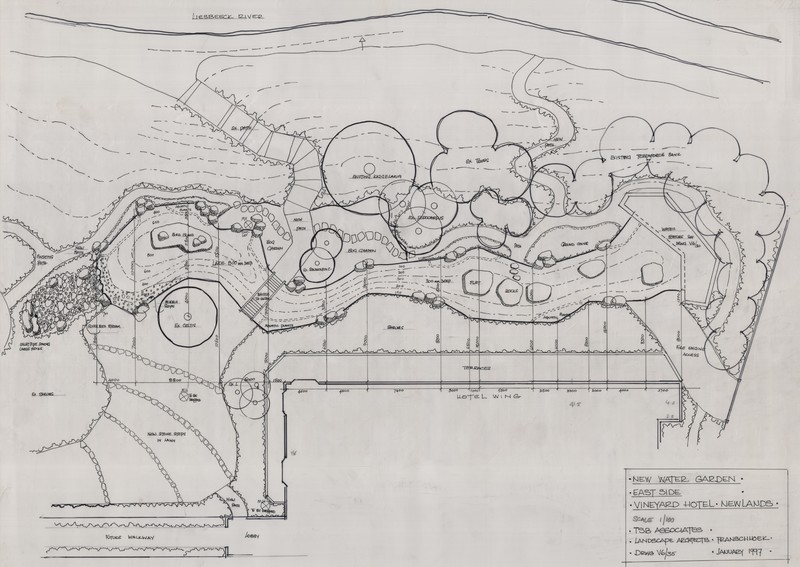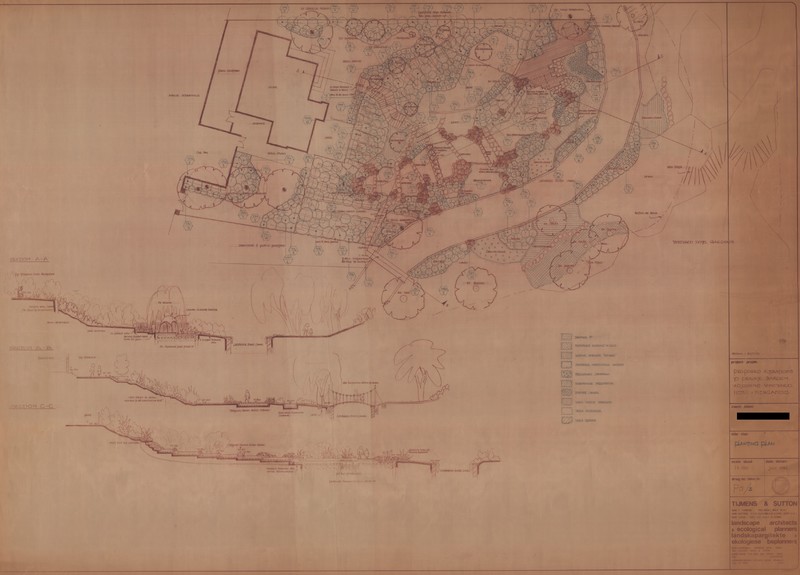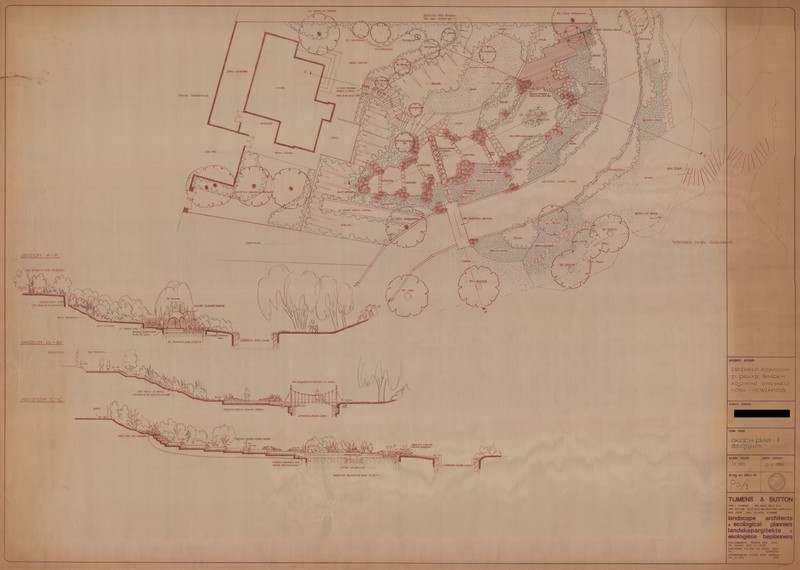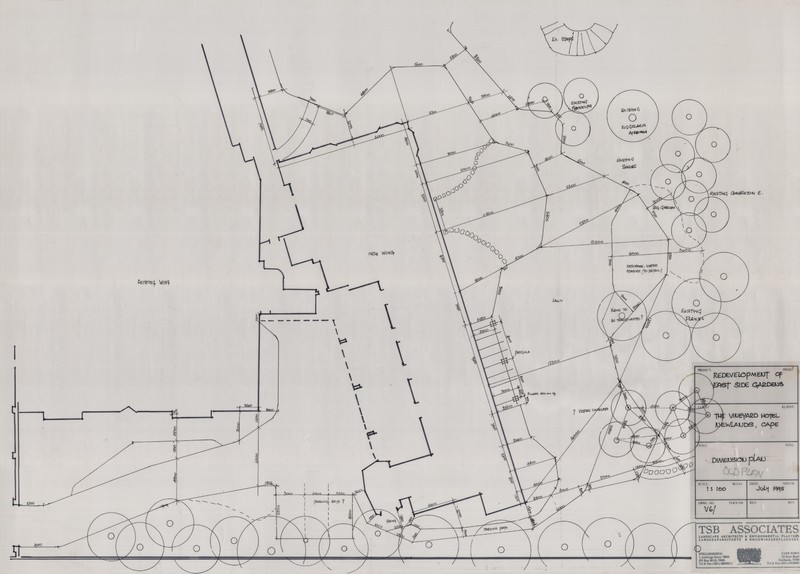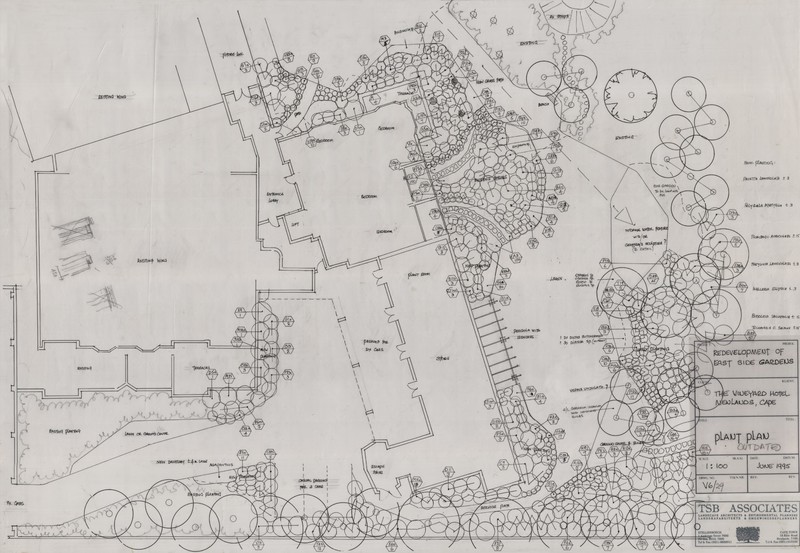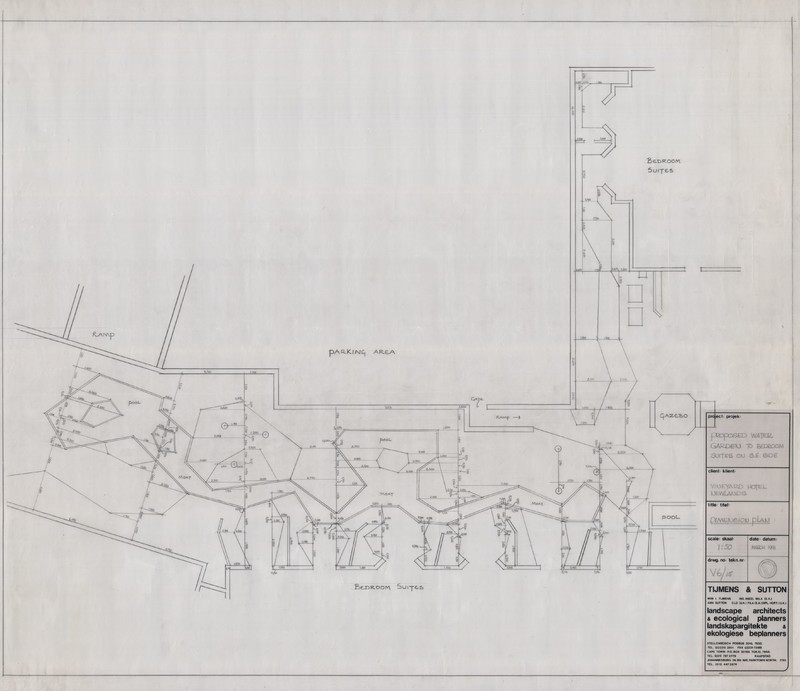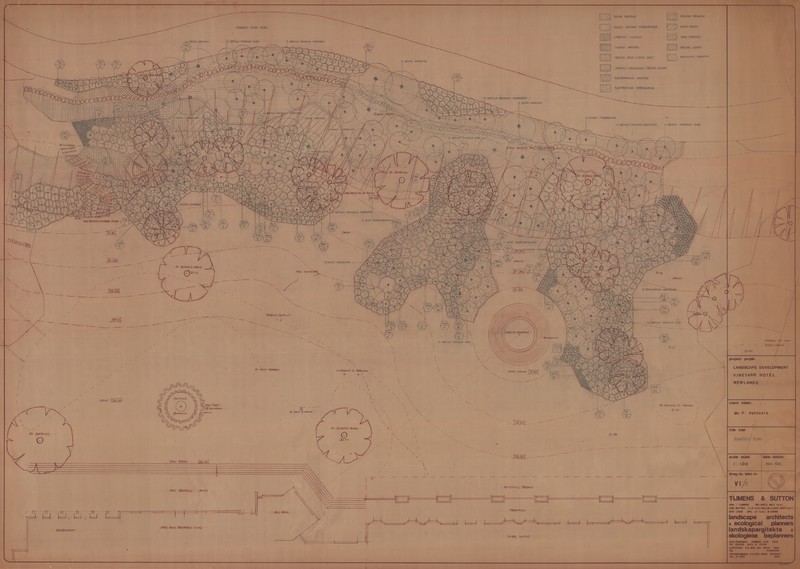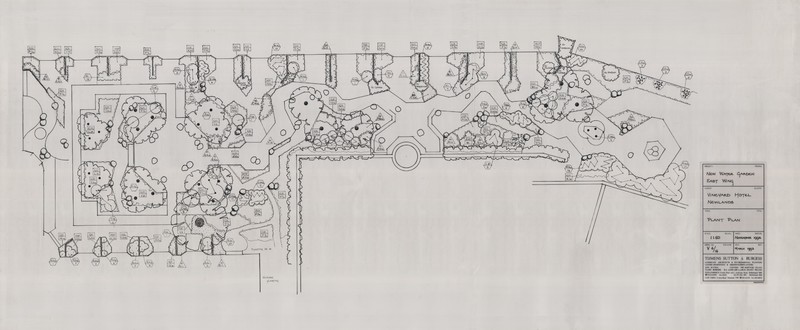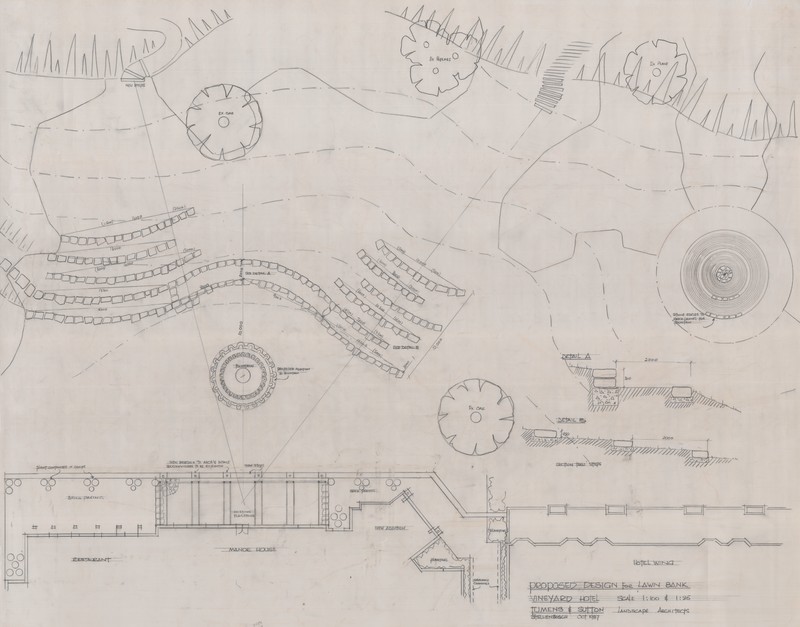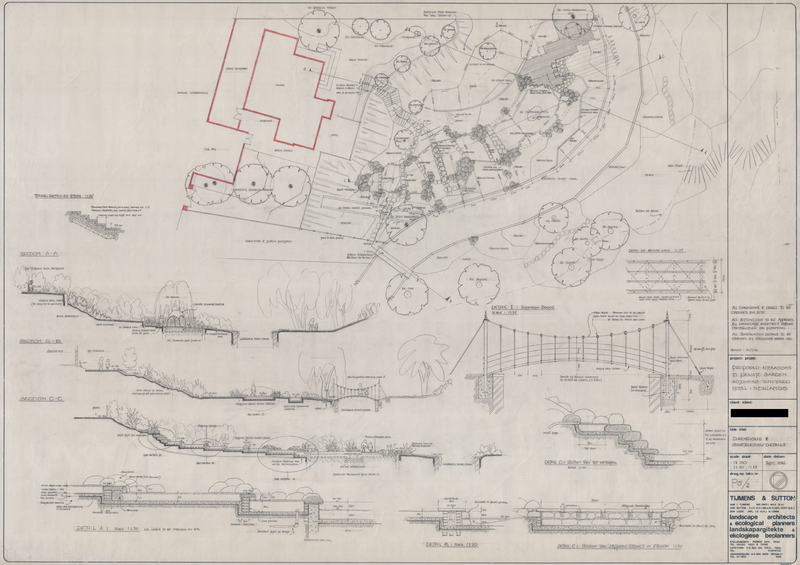The Vineyard Hotel
The lush gardens of Cape Town’s Vineyard Hotel were designed by Ann Sutton from the early 1980s onwards and comprise seven acres of landscaped parkland, offering guests a chance to escape into a secluded green oasis, surrounded by an amazing array of plants, flowers and trees that change each season. ‘The Vineyard is known for its garden, which is one of the striking features of the hotel and an enduring attraction for visitors. Yet very few people realise that it has been very consciously designed,’ says David Gibbs.
The Petousis family purchased the Vineyard Hotel in 1980 and Sutton was commissioned in 1983 to develop the gardens alongside the renovation and expansion of the hotel. The Liesbeek River runs through the property, so Sutton worked with what was already there in nature, taking note of where the water flows and designing around that. ‘The ponds near the Japanese garden with their irregular geometries are very exemplary of her work,’ says Gibbs. She also designed a number of beautiful water features using brick and stone, which add to the tranquil ambience, as do the stepping stones in the river and several meditative spaces that have been subtly integrated into the forested areas near the riverbank.
‘You’ll notice that she didn’t do the kind of mass planting, which you see today, where there are these blocks of a single species,’ observes Gibbs. ‘She combined different species for more diversity in the plant life.’ The large, natural rocks scattered throughout the gardens were collected from across the peninsula by the hotel’s late owner, Francois Petousis, who had a passion for geology.
The project has spanned several decades and continues to unfold out of Sutton’s originating vision. ‘Early photographs show that it was really just lawn and then this concrete channel where the Liesbeek flowed through the property. If you look at the ‘before and after’ pictures and walk around the property, you realise it’s a complete transformation. She introduced the indigenous riparian vegetation to stabilise the riverbank and help filter the water. It’s was all about selecting the correct plant for the correct micro-climate to perform the correct ecological function,’ says Gibbs.
Ann also insisted on planting a little vineyard at the Vineyard Hotel, which seems to have lacked such a feature since the days of Lady Anne Barnard! Now Ann’s vines are almost mature enough to produce fruit for wine-making. The project has been responsive, so every time the hotel has built a new wing or, say, introduced the conference centre, the landscape has had to adapt and be shaped around it. But there has always been a broad master plan, which includes the river and the views of the mountain, so the additions have been integrated holistically as they unfold.
In 2005, additions to the architecture and landscaping won an Award of Commendation from the Cape Institute of Architecture. The brief to Sutton and resident horticulturalist Chris van Zyl was to redesign the garden area around the swimming pool complex. This included the café, indoor pool, gymnasium and the new Angsana Spa and riverside suites. The design philosophy was to provide quietness, privacy and a unique experience for those using the swimming pool and spa complexes as well as introducing visitors to the richness of the Cape’s indigenous flora.
The herb garden, constructed on top of the extended underground parking garage, forms a green barrier between the gymnasium and the riverside suites, and provides an access point to the rest of the gardens. Guests can wander through it and experience the different perfumes, colours and textures while the garden also provides the hotel restaurants with seasonal herbs. Half of the garden is in shade most of the day so different species of mint are mainly grown, while the rest is in blazing hot sun all day, allowing a wider variety of herbs such as chives, garlic chives, lemon grass and various thymes to be planted.
‘Sitting at the hotel’s outdoor café, you’re not aware that you’re in a city,’ muses Gibbs. ‘The idea of the garden extends all the way to the mountain and beyond. You get a sense of this vastness that has been created.’


